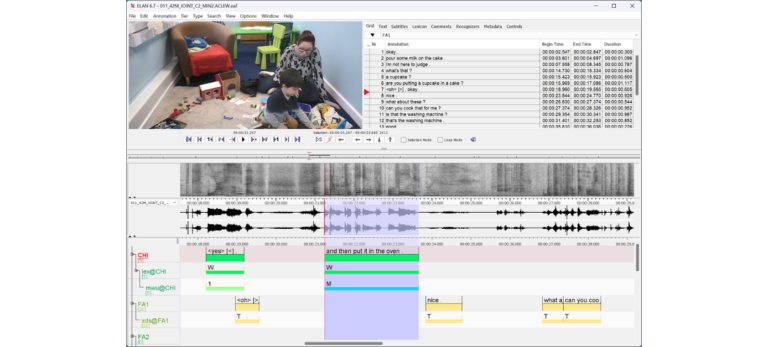
ELAN wird am Max-Planck-Institut für Psycholinguistik im Sprach-Archiv (TLA – The Language Archive) entwickelt. Es wird in der Programmiersprache Java
Short description of the project
TextGrid was a joint project developed from 2005-2015 and consisting of ten institutional and university partners
TextGrid was one of the five academic community projects that have been building a sustainable grid infrastructure in Germany since September 2005 as part of the D-Grid network with the D-Grid integration project in order to make information and knowledge technologies usable for science in a decentralized manner.
TextGrid has been offered by the supporting institutions of DARIAH-DE since 2015 and forms an important part of the services of the Association for Research Infrastructures in the Humanities and Cultural Studies. TextGrid is being further developed as part of the National Research Data Infrastructure (NFDI).
Project content
The development of a virtual research environment for the humanities and cultural studies was a response to increasing demand from the humanities for digital tools, particularly for philological editing and collaborative work. The improved version 2.0 of the TextGrid software has been available to download free of charge since summer 2012.
The focus of the third funding phase (2012-2015) was the establishment of sustainable continuous operation: the software, archive and thus the entire service are to be put on a long-term user basis in cooperation with users, scholars and learned societies. The supporting institutions of DARIAH-DE are now ensuring this long-term operation. The TextGrid Reposiotry is further developd within the NFDI consortium Text+.
The TextGrid virtual research environment is optimized for the digital indexing of humanities sources and their long-term archiving in a web archive, especially TEI-coded resources; it also supports the publication of data in an external portal. TextGrid offers two main components for this purpose: The TextGrid Laboratory (TextGrid Lab), a software (tools and services) for the digital indexing of humanities source material, supports humanities scholars throughout the entire research process - source materials can be created, edited, tagged with metadata and prepared for digital and analog publication in a decentralized and collaborative manner. Other open source tools and services optimized for TextGrid can be integrated via a “Market Space” integrated into the Lab. The TextGrid Repository (TextGrid Rep), which has been awarded the CoreTrustSeal, is a public long-term scientific archive. It guarantees the long-term availability and accessibility of humanities research data and materials that can be stored, published, visualized and searched sustainably, securely and in accordance with international standard formats.
Target groups:
The underlying vision of a digital ecosystem is based on the further development of the open source concept and is intended to enable the free exchange of individual components and specific adaptations according to the needs of the specialist communities.
Find out more at
textgrid.de/
Add your DH research project to the project showcase by submitting a short project description via the web form. Enter project data, a brief description, a graphic or visualization as well as a detailed description of the project content with technical assignment, addressees, added value, project managers, funding information and duration.

ELAN wird am Max-Planck-Institut für Psycholinguistik im Sprach-Archiv (TLA – The Language Archive) entwickelt. Es wird in der Programmiersprache Java
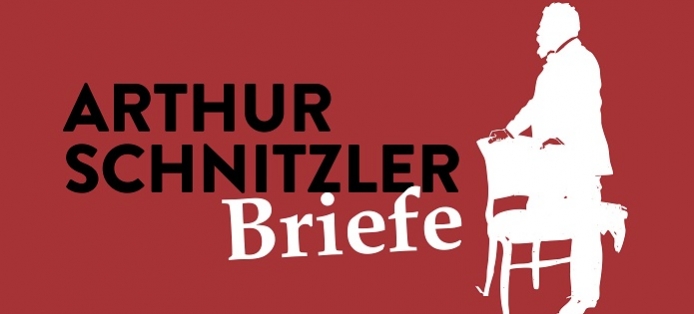
Arthur Schnitzler gehört zu den bedeutendsten österreichischen Autoren und war ein produktiver und gut vernetzter Briefschreiber. Seine Korrespondenz wurde jedoch
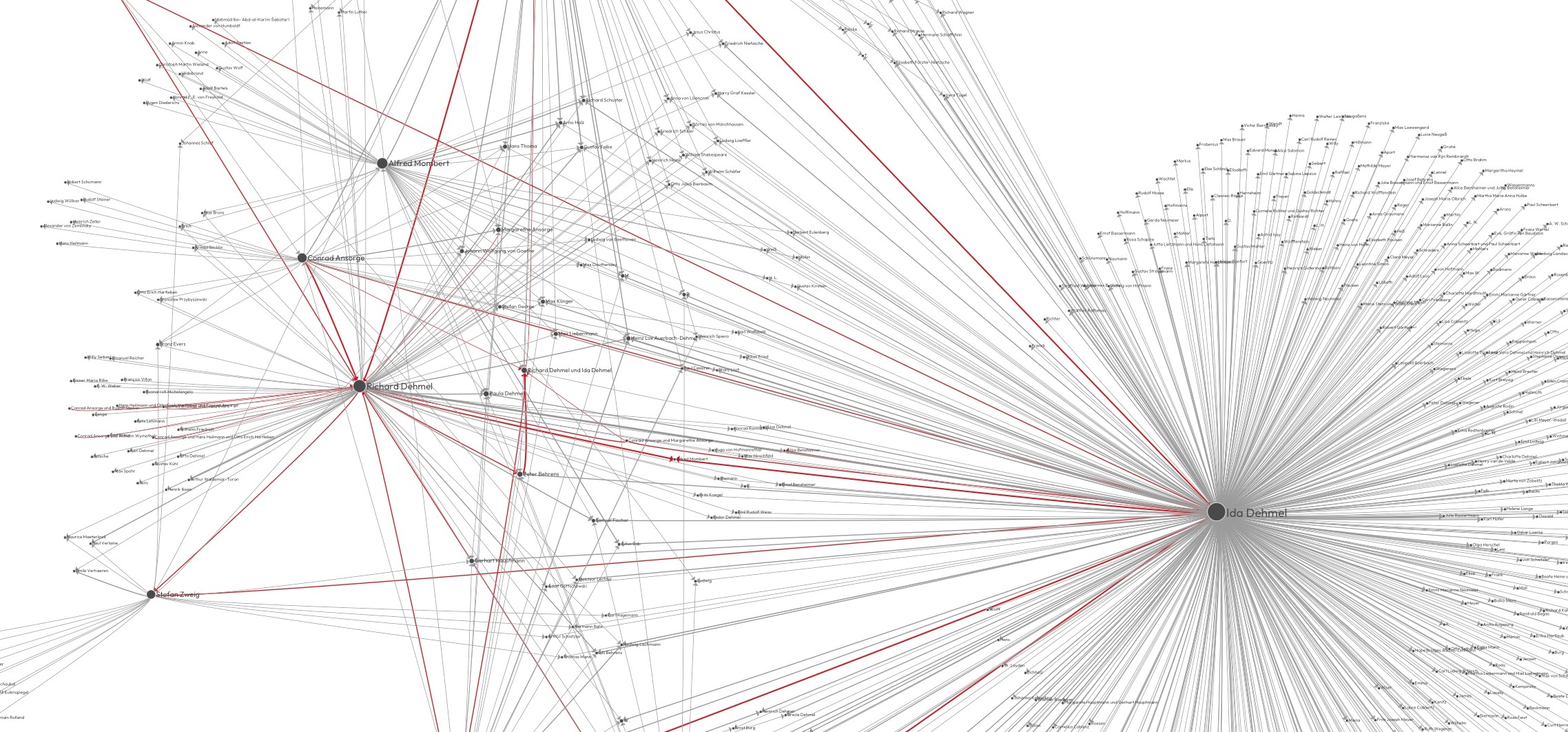
In Kooperation zwischen der Universität Hamburg und der Staats- und Universitätsbibliothek Hamburg werden die ca. 35.000 handschriftlichen Originalbriefe des Dehmel-Archivs
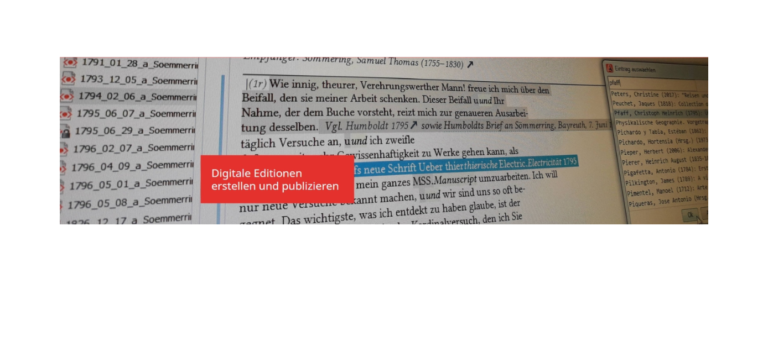
Die digitale Arbeitsumgebung ediarum ist eine aus mehreren Softwarekomponenten bestehende Lösung, die es Wissenschaftler*innen erlaubt, Transkriptionen von Manuskripten und Drucken
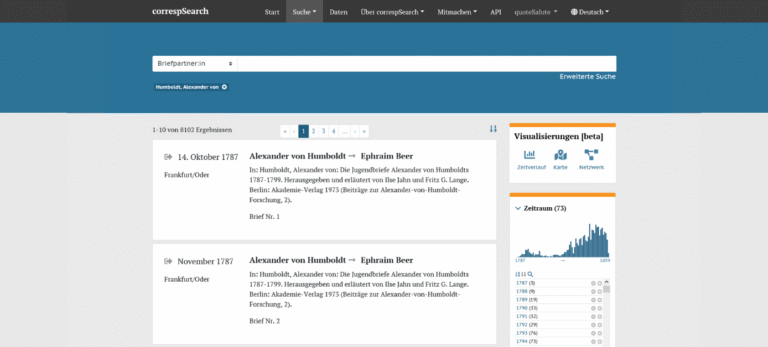
Der Webservice correspSearch wurde entwickelt um ein lange bestehendes Desiderat von Briefeditionen zu beheben: Die edierten Briefe editionsübergreifend durchsuchen zu
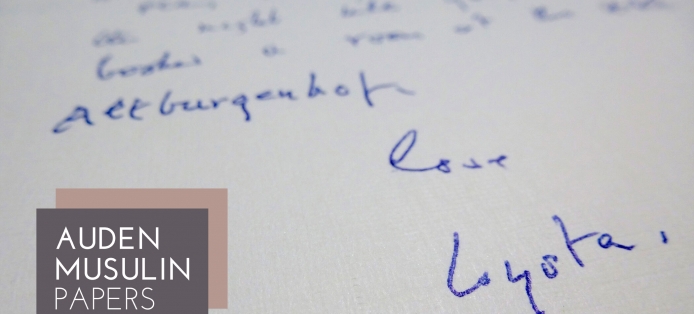
Von 1958 bis 1973 lebte und arbeitete der anglo-amerikanische Dichter Wystan Hugh Auden (1907-1973) viele Monate im Jahr im niederösterreichischen

Arthur Schnitzler gehört zu den bedeutendsten österreichischen Autoren und war ein produktiver und gut vernetzter Briefschreiber. Seine Korrespondenz wurde jedoch

Von 1958 bis 1973 lebte und arbeitete der anglo-amerikanische Dichter Wystan Hugh Auden (1907-1973) viele Monate im Jahr im niederösterreichischen
Wir verwenden Cookies und ähnliche Funktionen zur Verarbeitung von Daten. Die Zustimmung ist freiwillig und kann jederzeit widerrufen werden.